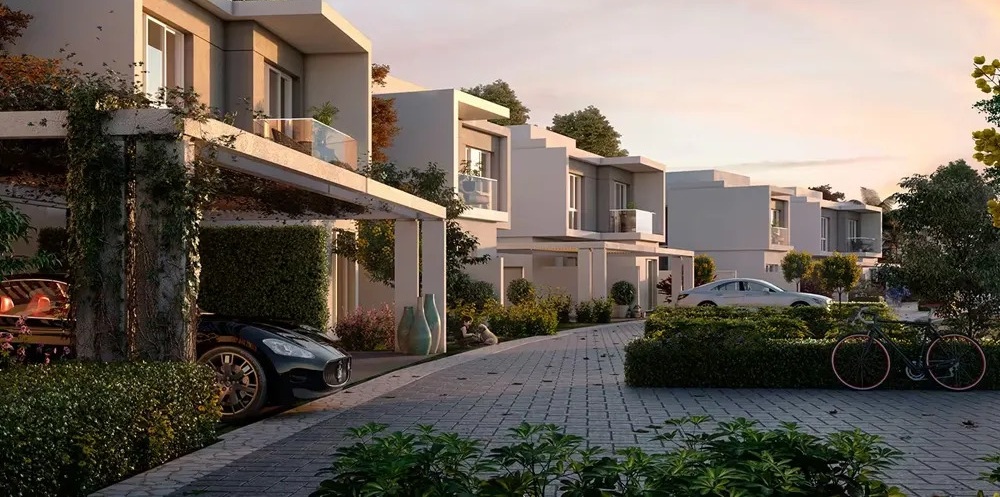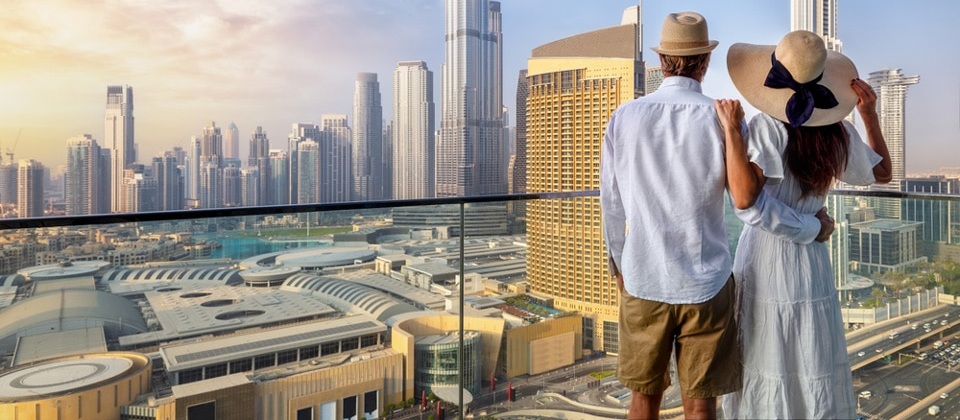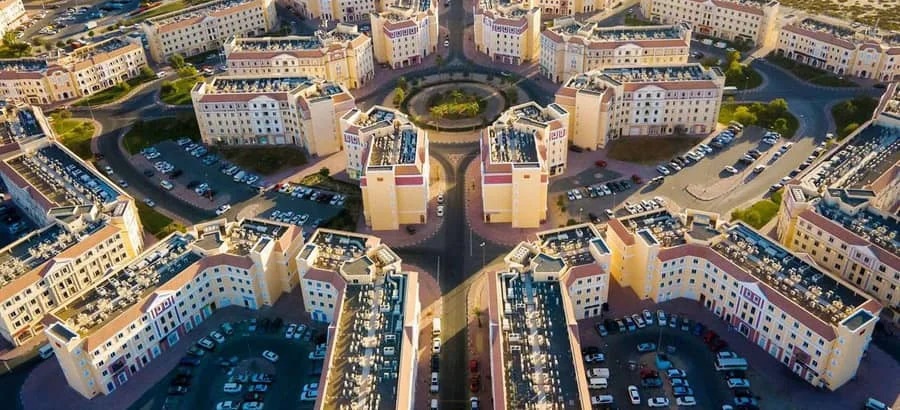Rent or Buy a Property in Dubai – Making the Right Choice
Tuesday, 1 April 2025
Dubai is a city of endless opportunities, attracting individuals from around the world who seek a cosmopolitan lifestyle. With a thriving real estate market, the question of whether to rent or buy a property in Dubai is a common dilemma. The decision ultimately depends on personal circumstances, financial goals, and market conditions. Let’s explore both options to help you determine the best choice for your situation.
Table of Contents
- The Appeal of Dubai’s Real Estate Market
- Key Considerations When Deciding to Buy or Rent
- Renting a Property in Dubai
- Buying a Property in Dubai
- Making the Right Decision: Rent or Buy?
- Frequently asked questions
The Appeal of Dubai’s Real Estate Market
Dubai’s real estate sector has seen remarkable growth, positioning the city as a global hotspot for residential investments. The landmark Freehold Decree of 2002 revolutionized the market by allowing foreigners to own properties in designated areas, further enhancing the city’s appeal to investors and homebuyers alike.
If you’re wondering whether to buy or rent in Dubai, understanding the financial implications and lifestyle benefits of each option can guide you in making the right decision.
Key Considerations When Deciding to Buy or Rent
Financial Aspects
- Assess your budget, savings, and long-term financial plans before making a decision.
- Buying requires a substantial initial investment, including a down payment, mortgage costs, and registration fees.
- Renting offers flexibility with lower upfront costs, but monthly rental payments do not build equity.
- If your goal is investment, evaluate potential property appreciation and the costs involved in reselling a property in Dubai.
Lifestyle and Flexibility
- If you are unsure about your long-term stay in Dubai, renting provides the freedom to relocate easily.
- Buying is more suitable for individuals seeking long-term stability and ownership benefits.
- Homeownership allows customization and personalization, while renting limits modifications to the property.
Market Trends
- Keep track of Dubai’s real estate trends, including rental transaction data, sales prices, and demand for specific areas.
- Analyze whether it is a buyer’s or renter’s market to make a cost-effective decision.
Mortgage Eligibility
- Expatriates interested in purchasing a property should understand the mortgage eligibility requirements set by banks and financial institutions.
- Mortgage approvals depend on factors like income stability, employment status, and credit history.
Maintenance and Responsibilities
- Renting transfers most maintenance responsibilities to the landlord, reducing unexpected expenses.
- Owning a property means you are responsible for upkeep, repairs, and service charges.
Renting a Property in Dubai

Advantages of Renting
- Lower Short-Term Costs – Renting requires a significantly lower upfront investment compared to buying, making it a more accessible option for many residents.
- Flexibility – Renting allows you to move easily, upgrade, or downsize based on your changing needs, making it ideal for expatriates or those uncertain about their long-term stay in Dubai.
- No Maintenance Responsibilities – In most rental agreements, landlords handle maintenance, repairs, and service charges, reducing unexpected expenses for tenants.
- Access to Premium Amenities – Tenants can enjoy access to luxurious facilities like swimming pools, gyms, and parking without the long-term financial commitment of ownership.
Disadvantages of Renting
- Uncertainty with Landlords – Rental disputes over price increases, contract terms, and unit modifications can sometimes be a challenge.
- Financial Risks – If you face financial difficulties or job loss, rent payments may become a burden with no asset to show for your expenses.
- Lack of Investment Returns – Unlike homeownership, renting does not allow you to build equity or benefit from property appreciation.
- Limited Personalization – Tenants may have restrictions on altering their space, which can limit their ability to make the property feel like home.
- Possible Rent Increases – The rental market fluctuates, and landlords have the right to increase rent in alignment with market rates, leading to potential financial uncertainty.
Buying a Property in Dubai
Advantages of Buying
- Long-Term Stability – Owning a property provides a sense of security, ensuring that you won’t need to worry about lease renewals or relocating.
- Wealth Building – Homeownership allows you to build equity over time, contributing to financial growth and long-term stability.
- Freedom to Customize – Unlike renting, buying a property allows you to personalize and renovate your space to match your style and needs.
- Potential for Appreciation – Dubai’s real estate market has historically seen property value appreciation, offering investors lucrative returns.
- Fixed Housing Costs – Mortgage payments, particularly with fixed-rate loans, provide stability compared to fluctuating rental rates.
Disadvantages of Buying
- High Upfront Costs – Buying a home requires a substantial down payment along with additional costs such as registration fees, maintenance expenses, and service charges.
- Long-Term Commitment – Unlike renting, purchasing a property requires a long-term financial and geographical commitment.
- Ongoing Maintenance Costs – As a homeowner, you bear the responsibility for all maintenance and repair expenses, which can add up over time.
- Market Uncertainty – While property values tend to rise, market fluctuations can impact resale value and investment returns.
Making the Right Decision: Rent or Buy?
Choosing between renting and buying in Dubai is a personal decision that depends on factors such as financial stability, future plans, and market conditions. If flexibility and lower upfront costs are your priority, renting may be the best option. However, if you’re looking for long-term security and investment potential, buying a home in Dubai can be a rewarding choice.
The choice between renting and buying in Dubai depends on your financial readiness, lifestyle goals, and future plans. Renting is a great option for those who prefer flexibility, while buying offers stability and potential investment returns. By evaluating market conditions and personal circumstances, you can make an informed decision that aligns with your needs. If you’re still unsure, consulting a real estate expert can provide clarity on the best path forward.
Frequently Asked Questions (FAQs)
Is it better to rent or buy a property in Dubai?
The decision depends on your financial situation, long-term plans, and lifestyle preferences. Renting offers flexibility and lower upfront costs, while buying provides stability and long-term investment potential.
What are the upfront costs of renting a property in Dubai?
Renting requires an initial security deposit (typically 5% of the annual rent for unfurnished units, 10% for furnished), agency fees (around 5%), and possibly Ejari registration fees.
What are the upfront costs of buying a property in Dubai?
Purchasing a property involves a down payment (typically 20-25% for expats), Dubai Land Department (DLD) registration fees (4% of the property price), real estate agent fees (2%), mortgage processing fees, and maintenance charges.
Can expats buy property in Dubai?
Yes, expats can buy property in designated freehold areas, which include locations like Dubai Marina, Downtown Dubai, Palm Jumeirah, and Jumeirah Lakes Towers (JLT).
Is buying property in Dubai a good investment?
Dubai’s real estate market offers high rental yields and potential capital appreciation. However, market fluctuations and economic conditions can impact investment returns.
What are the benefits of renting over buying in Dubai?
Renting provides flexibility, lower upfront costs, no maintenance responsibilities, and access to premium amenities without ownership commitments.
What are the risks of renting in Dubai?
Rental prices may increase based on market conditions, landlords can refuse contract renewals, and tenants lack long-term equity benefits.
Can I get a mortgage as an expat in Dubai?
Yes, expats can apply for home loans from UAE banks, typically requiring a 20-25% down payment. Mortgage terms and interest rates vary based on income and financial profile.
How do rental price increases work in Dubai?
Landlords can only increase rent based on the RERA (Real Estate Regulatory Authority) rental index. If an increase is applied, it must comply with government regulations.
What factors should I consider when choosing to rent or buy in Dubai?
Consider your financial stability, job security, long-term plans, market conditions, and lifestyle preferences before making a decision.





